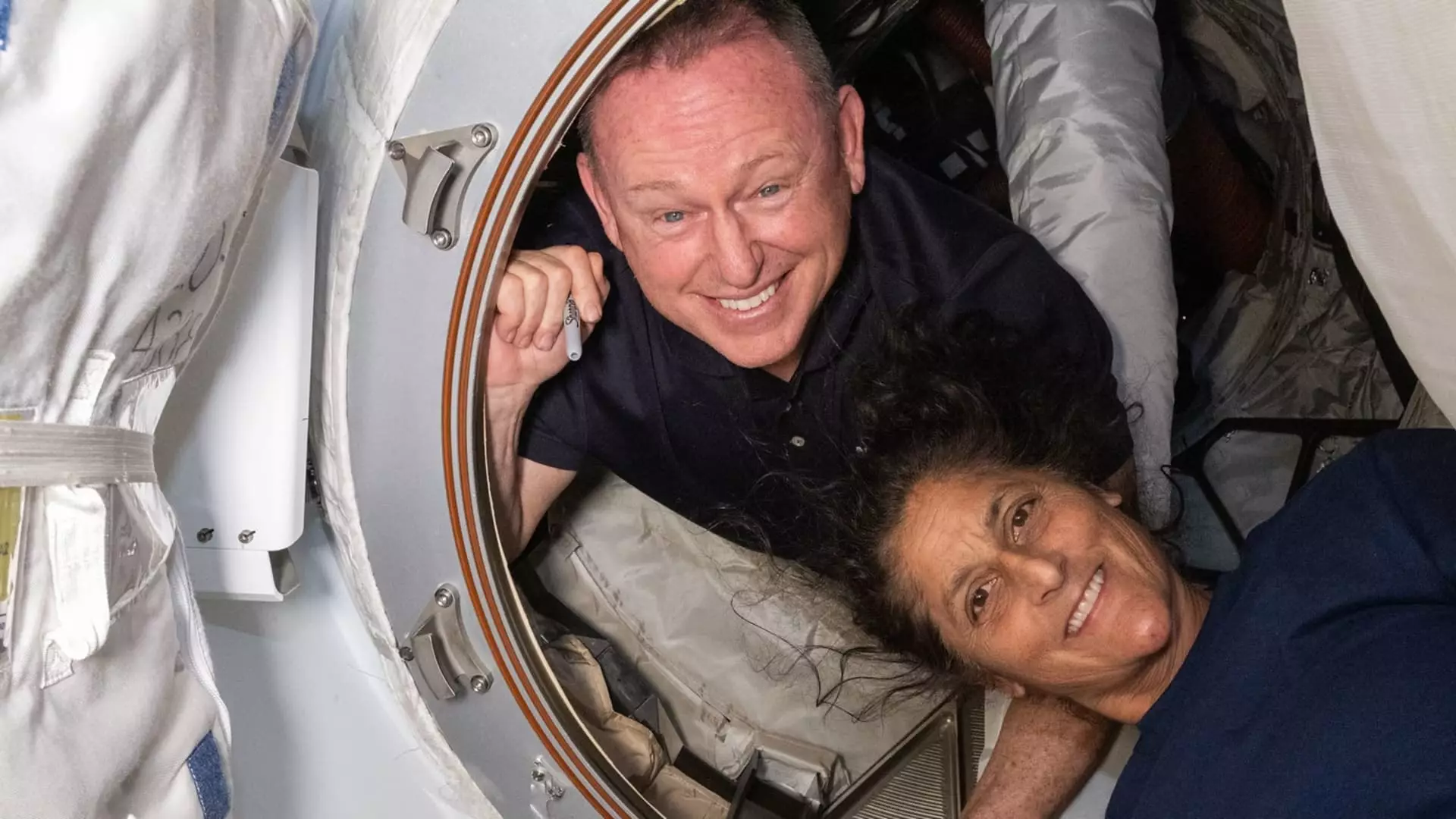The recent predicament involving NASA astronauts Butch Wilmore and Suni Williams sheds light on a much deeper crisis within the American space exploration program. Stuck in a situation where the faulty Boeing Starliner left them stranded at the International Space Station (ISS) far longer than planned, this narrative unveils not just technical failures but hints at a broader political landscape fraught with ambition, competitiveness, and a surprising amount of dissent. In effect, this saga raises serious questions about accountability and the future of America’s partnership with private aerospace contractors.
Technical Flaws and An Uncertain Future
When the Boeing Starliner capsule—dubbed “Calypso”—malfunctioned during its docking procedure, it became clear that the repercussions extended beyond a mere inconvenience for Wilmore and Williams. This episode symbolized the inherent risks tied to relying on privatized companies in such a high-stakes arena. With over $2 billion lost in the development of the Starliner, Boeing stands at a precarious juncture; this moment casts doubt on their capability to deliver safe, reliable space travel. Such a failure not only jeopardizes Boeing’s future contracts but places the integrity of NASA’s operational framework in jeopardy.
The decision to send up astronauts in a SpaceX Dragon capsule instead raises an alarming question: Why does NASA find itself in a position where one private contractor must rescue crew members from another? This signifies a deep-seated structural flaw in how American space policy is evolving. The ambitious drive to involve private companies like SpaceX and Boeing in a competitive scenario has become a double-edged sword, revealing vulnerabilities within what should be a meticulously coordinated mission.
The Role of Politics in Space Exploration
Nothing complicates space travel like political machinations. The discourse around Wilmore and Williams’ extended stay began to morph into a political football, with President Trump and Elon Musk insinuating that NASA might be using the astronauts as pawns in a political game. The unfounded allegations that the Biden administration had kept the astronauts on board the ISS for ulterior motives represent an alarming intermingling of policy, whims, and personal vendettas.
Instead of rallying around the space program, politicians turned this crisis into an opportunity to score points in their respective agendas. This highlights a troubling tendency to politicize scientific endeavors that should be grounded in collaboration and shared human achievement. The ISS ought to be a symbol of international unity and progress, yet it was mired in a cloud of partisan rhetoric, showcasing the imbalance when political interests overshadow scientific or humanitarian goals.
Human Aspect: Stranded Yet Resilient
While technical failures and political machinations have captured the headlines, the human aspect behind this saga is equally compelling. Both Wilmore and Williams, seasoned astronauts with years of experience, found themselves in an unexpected and emotionally wearing situation. Williams’ determination that they were not “stranded” reflects a professional resilience which many may overlook. Their focus on continuing scientific experimentation and maintenance demonstrates an admirable commitment to their roles, elevating the human experience in a situation characterized by chaos.
While the attention has mostly been on the technical inadequacies and the political upheaval surrounding their return, it’s crucial to appreciate the emotional toll this extended wait has had on them. Their eagerness to reunite with family and pets underscores the fact that, at the end of the day, astronauts are family members and human beings with lives that extend beyond their missions.
A Cautionary Tale for Future Missions
NASA’s astronauts’ journey should serve as a cautionary tale for future missions: reliance on private companies for essential tasks comes with inherent risks that must be managed effectively. Moreover, an examination of how politics intervene plays a critical role in shaping policies that may not be in the best interest of space exploration.
With the potential for collaboration and rivalry co-existing in the realm of space exploration, the future hinges upon establishing clear channels that encourage accountability, safety, and dedication to collective goals. As exhilarating as the prospect of commercial space travel may be, it necessitates a careful recalibration of intentions and strategies going forward. While NASA seeks to push the envelope, it’s time to consider whether its current trajectory truly serves the grand ambitions of humanity among the stars.

